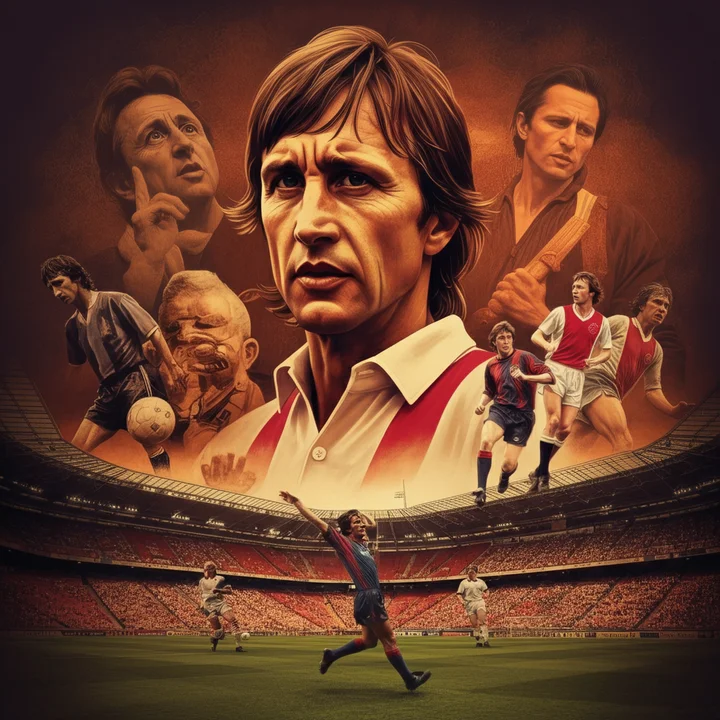From the electrifying roar of Estadio Azteca to the unforgettable sight of Pelé lifting the Jules Rimet trophy, Brazil’s triumph in the 1970 FIFA World Cup remains one of football’s most iconic moments. For many, it wasn’t just a tournament win; it was a revolution. The 1970 Brazil team didn’t just secure their place as one of the greatest squads of all time; they transformed the way football was played, watched, and celebrated around the globe.
This blog explores the magic, majesty, and lasting influence of Brazil’s 1970 World Cup-winning team. From legendary players to tactical innovations, and their enduring cultural impact, here’s how Brazil 1970 changed world football forever.
The Myth and Majesty of Brazil’s 1970 World Cup Team
Brazil’s 1970 lineup is often described as football’s ultimate dream team. Competing during a politically fraught era in Brazil under military dictatorship, the players still managed to express freedom, joy, and artistry on the pitch. Their style was so effortless and free-flowing that it earned the nickname “o jogo bonito” (the beautiful game).
What makes Brazil 1970 so memorable isn’t just that they won all six of their matches; it’s how they won them. With an attacking swagger unmatched in World Cup history, the team scored 19 goals during the tournament, blending individual brilliance with cohesive teamwork. It wasn't just football; it was art.
Meet the Legends Behind the Triumph
To understand why this team holds such an enduring legacy, one must first look at its players. The 1970 squad was stacked with some of the finest footballers the world has ever seen.
Pelé
Often regarded as the greatest footballer of all time, Pelé entered the 1970 World Cup determined to shine after injuries cut his 1966 campaign short. The King of Football delivered with four goals and countless mesmerizing moments, including an iconic nod of approval from the defeated Italian goalkeeper after Pelé’s thunderous header in the final.
Jairzinho
Known fittingly as “The Hurricane,” Jairzinho became the only player in World Cup history to score in every match of the tournament. His pace, power, and clinical finishing made him a nightmare for defenders.
Tostão
A cerebral forward with unparalleled vision, Tostão wasn’t just a goalscorer but also a key playmaker who linked Brazil’s midfield and attack. He epitomized selflessness and helped create space for his teammates to flourish.
Rivelino
The master of the curving free kick, midfield wizard Rivelino was a creative force who dazzled fans with his dribbling skills and audacious attempts from long range. His elegance on the ball became the stuff of legend.
Carlos Alberto
Captain and defensive stalwart Carlos Alberto scored one of the most famous goals in football history during the final. His thundering strike after a silky team move symbolized the spirit of Brazil’s innovative 1970 side.
Attacking Brilliance Beyond Compare
What truly set Brazil 1970 apart was their ability to combine fluid, free-flowing football with ruthless finishing. Their attacking brilliance came from technical mastery, unselfish passing, and seemingly telepathic chemistry.
This was a team that thrived on interchanging positions, quick transitions, and unlocking spaces. Brazil’s players were comfortable across multiple roles, with defenders often driving forward into attacking positions and forwards pressing high up the pitch.
Their style wasn’t just effective; it was exhilarating. Every pass, dribble, and goal seemed to carry the joy of the game, earning admiration from fans and neutrals alike.
Tactical Innovations That Redefined the Game
From a tactical perspective, Brazil 1970 was years ahead of its time. Under coach Mário Zagallo, they implemented a hybrid 4-2-4 formation that allowed seamless movement between defense and attack.
The 4-2-4 Formation
Brazil’s 4-2-4 strategy sacrificed defensive security for attacking flair, relying on the technical ability of their midfield duo to dictate the game’s tempo. This approach created spaces for their wingers and full-backs to exploit, enabling overlapping runs and breathtaking counters.
Overlapping Full-Backs
Brazil’s full-backs, including captain Carlos Alberto, were integral to their attack. Unlike traditional defenders, they bombed forward to create numerical superiority in wide areas, a relatively rare tactic at the time.
These tactical innovations inspired coaches worldwide and formed the basis for modern attacking philosophies in football.
The Final vs. Italy: A Match for the Ages
Brazil’s 4-1 victory over Italy in the 1970 final is often described as the perfect football match. Played under the soaring Mexican sun, the game showcased everything that made Brazil 1970 so special.
Pelé opened the scoring with a towering header, Jairzinho added another goal to his unbelievable tally, and Gérson’s masterful long-range strike cemented their dominance. The crowning moment came when Carlos Alberto smashed in Brazil’s fourth goal following a scintillating 10-pass move, one of the finest team goals in history.
The final wasn’t just a football match; it was a celebration of the sport’s beauty, showcasing teamwork, skill, and creativity at its peak.
The Cultural Impact of “The Beautiful Game”
Brazil’s 1970 team didn’t just win matches; they won hearts. Their success cemented Brazil as the spiritual home of football and established "the beautiful game" ethos as a global ideal.
Their expressive style transcended sport, inspiring art, fashion, and music. The team's yellow jerseys became iconic, symbolizing joy, unity, and creativity. For millions around the world, Brazil 1970 represented the pinnacle of footballing aspiration, even decades after their victory.
An Enduring Legacy
The influence of Brazil’s 1970 team reverberates through history, shaping how football is played and admired today.
Evolution of Playing Styles: Brazil’s tactical innovations have inspired generations of players and coaches, from Johan Cruyff's Total Football to Pep Guardiola’s tiki-taka.
Global Admiration: The team set the gold standard for international football, earning respect and adulation from fans across every continent.
Elevating Football’s Status: Brazil 1970 helped solidify football as the world’s most popular sport, uniting billions with their artistry and passion.
Did Brazil 1970 Redefine Football’s Global Appeal?
Few teams in history have had the power to shape the very essence of a sport. Brazil’s 1970 World Cup-winning side did just that. Through their artistry, tactical brilliance, and unwavering love for the game, they elevated football beyond competition, transforming it into a celebration of culture, creativity, and beauty.
Even over 50 years later, their legacy endures, inspiring young players to dream big and reminding fans why they fell in love with football in the first place.
For football purists, Brazil 1970 isn’t just a memory; it’s a blueprint for the beautiful game.



